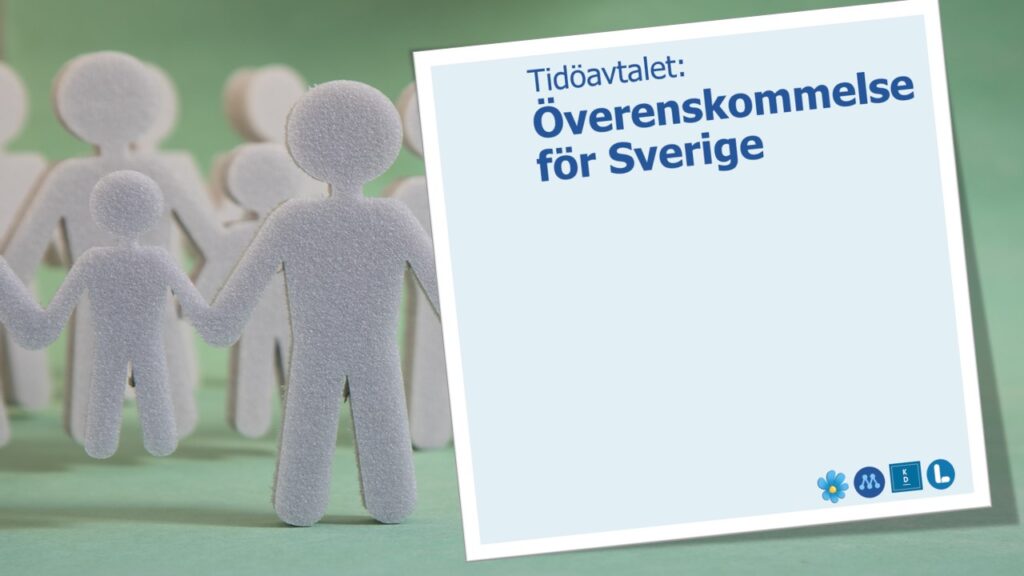by Azher Hameed Qamar, The Loop – October 16, 2023

The Swedish government has proposed an obligation that would require public sector workers to notify police and immigration authorities about undocumented migrants. Azher Hameed Qamar says the proposal contradicts professional ethics and human rights. Using employees as ‘agents’ compromises social care, welfare organisations’ credibility and humanitarian ethics
The Swedish government is committed to accelerating the return of undocumented migrants to their home countries. Besides other measures to control and reinforce the return operation, one proposed measure is:
Municipalities and authorities shall be obliged to inform the Migration Agency and the Police Authority when they come into contact with persons who are staying in Sweden without a permit
This proposal, a part of the Tidöavtalets förslag (Tidö Agreement), is known as ‘notification obligation’. It is an attempt to make it mandatory for professionals working in social and welfare services to identify and report undocumented persons to the police or the migration agency.
The Tidö Agreement was presented in October 2022 by the Moderate Party, the Christian Democrats, the Liberals, and the Sweden Democrats. Since then, welfare sector professionals in frequent contact with migrants (documented and undocumented) have raised numerous concerns. The notification obligation will apply to almost all public office workers handling social services at any level.
A contradiction with fundamental human rights
The October 2022 Civil Rights Defenders review of the Agreement found that it lacked a rights-based approach. Indeed, the review ruled it is in direct conflict with human rights. The notification obligation in particular contradicts the fundamental human right to data protection and privacy in General Data Protection Regulation and several other human rights declarations. It has caused considerable unrest among people from a variety of professions.
Disapproval from the social service sector
Social worker Erika Söderberg has a job which involves, among other things, increasing trust in authorities, such as schools and social services. She claims she would find it difficult to do her job if forced to report undocumented people. Söderberg does not see any benefit to it, arguing that:
There is a risk that children in undocumented families will not come to school if the risk of being reported exists
Söderberg’s concern is valid, and could prevent a school from helping children in need. She is not alone. Many other professional and civil society employees who interact with migrants have also raised concerns. Librarian Moa Stockstad and Malmö’s city librarian Torbjörn Nilsson see the Tidö Agreement as being in conflict with the Library Act and library missions, which pledge that libraries must remain accessible to everyone.
Similarly, healthcare and childcare professionals also distance themselves from the Tidö Agreement, claiming it conflicts with their professional ethics. The Healthcare Act, and the Convention on the Rights of the Child both make it mandatory to prioritise and protect the best interests of the child or patient in need.
Civil society reaction and resistance
Civil society organisations (CSOs) also pushed back against the Tidö Agreement, inviting the general public to protest against it. One online campaign, for example, criticised the notification obligation as a risk to fundamental rights. CSOs are also encouraging people via social media to push the government to rescind this legislation.
Ethical considerations in social research
As a social science researcher, I interact with people, and seek informed consent before engaging them as research participants. And to conduct research involving direct or indirect personal data, I must gain approval from Sweden’s Ethical Review Authority. Authorities are concerned that the Tidö Agreement may force people to reveal sensitive personal data that renders them identifiable. This includes information on racial / ethnic / religious identities / beliefs, sexual orientation, political inclinations, or biological / genetic data.
As a general rule, you should not process sensitive personal data unless it is in the public interest or for legitimate scientific purposes. If you do, you should take further measures, such as pseudonymisation (using codes or fictitious labels) to protect participants’ anonymity. In line with these ethical protocols, researchers always include detailed ethical considerations in research projects, to ensure the study does not risk participants’ health or safety.
The Tidö Agreement and humanitarian principles
Notification obligation will compromise social service institutions’ humanitarian values and principles. In particular, it will affect employees directly involved in human care, such as teachers, healthcare workers, and social workers. Resistance to the proposal has put the majority of public sector employees at loggerheads with the government.
If employees in social care and welfare organisations are working as ‘agents’ to report undocumented migrants, this jeopardises those organisations’ credibility and humanitarian principles. Human freedom, dignity, privacy, and safety are the fundamental considerations of such services. Compromising on these values can betray the trust of service users, and creates a moral dilemma for employees.
Public resistance and social crisis
The Swedish government is currently facing a number of challenges related to undocumented migrants. But forcing welfare and social service sector workers to perform peer-surveillance for police and immigration agencies is not an appropriate or rational solution. As the parties involved in drawing up the Tidö Agreement attract strong criticism, campaigns to refuse the proposed law are already underway.
Public resistance to the Tidö Agreement is a sign that if the government insists on enforcing notification obligation, it could trigger a social and political crisis. This will damage Sweden’s reputation as a country in which human rights are the paramount consideration of social sector organisations.
This article was originally published at The Loop and is republished here under a Creative Commons
Leave a Reply